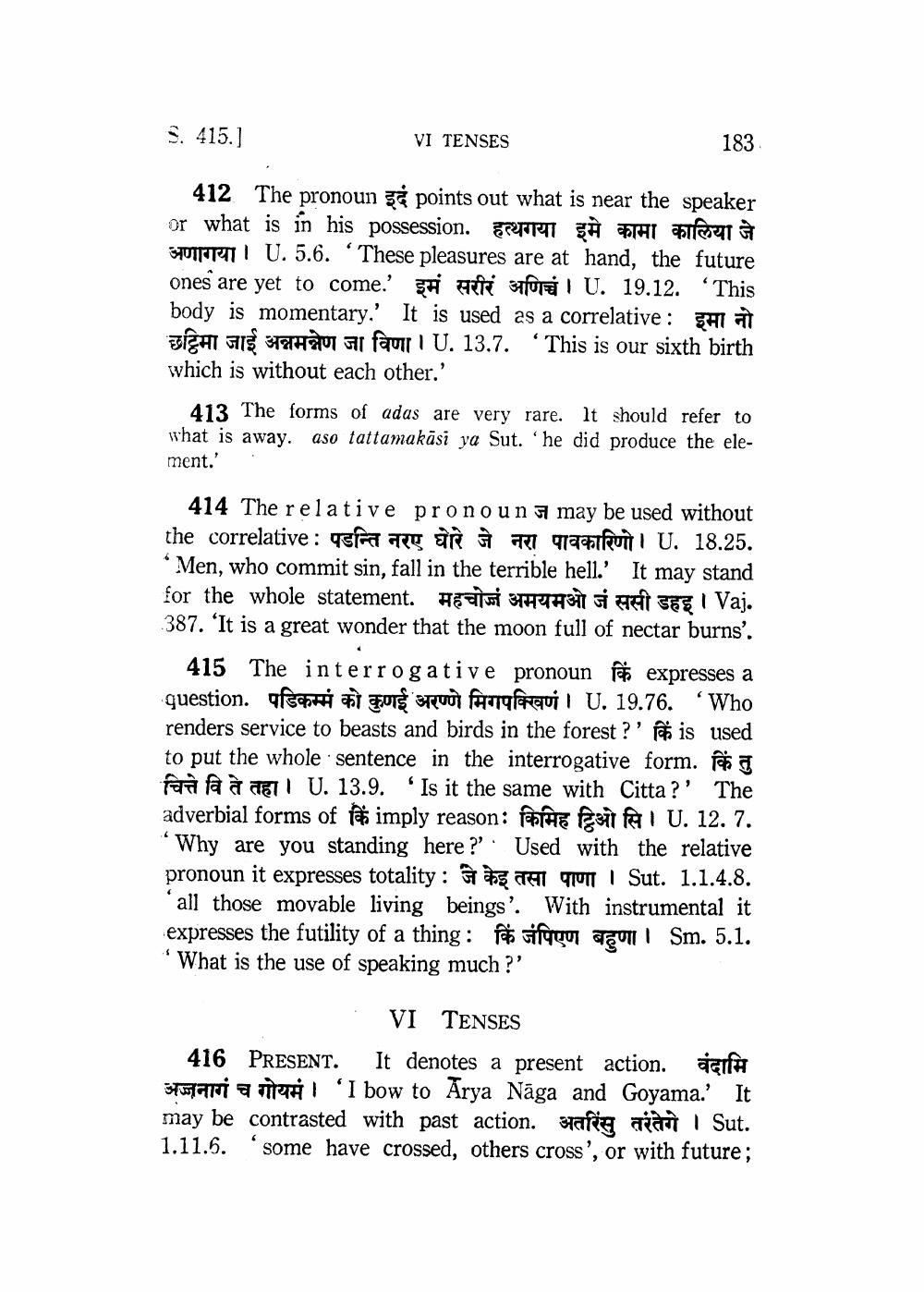________________
S. 415.]
VI TENSES
412 The pronoun
points out what is near the speaker
or what is in his possession. हत्थगया इमे कामा कालिया जे U. 5.6. These pleasures are at hand, the future ones are yet to come.' for U. 19.12. 'This body is momentary.' It is used as a correlative: छट्टिमा जाई अन्नमन्त्रेण जा विणा । U. 13.7. which is without each other.'
This is our sixth birth
413 The forms of adas are very what is away. aso tattamakäsi ya Sut.
ment.'
183
3
rare.
It should refer to he did produce the ele
414 The relative pronoun may be used without the correlative : पडन्ति नरए घोरे जे नरा पावकारिणो । U. 18.25. Men, who commit sin, fall in the terrible hell.' It may stand for the whole statement महचोजं अमयमओ जं ससी डहइ | Vaj. 387. 'It is a great wonder that the moon full of nectar burns'.
415 The interrogative pronoun f expresses a question. पडिकम्मं को कुणई अरण्णे मिगपक्खिणं । U. 19.76. 'Who renders service to beasts and birds in the forest?' is used to put the whole sentence in the interrogative form. चित्ते वि ते तहा । U. 13.9. Is it the same with Citta?' The adverbial forms of किं imply reason : किमिह द्विओ सि । U. 12. 7. 'Why are you standing here?' Used with the relative pronoun it expresses totality: Sut. 1.1.4.8.
all those movable living beings'. With instrumental it expresses the futility of a thing : किं जंपिएण बहुणा । Sm. 5.1. What is the use of speaking much ?'
VI TENSES
416 PRESENT. It denotes a present action. smeri a muri | 'I bow to Arya Naga and Goyama.' It may be contrasted with past action. अतरिंसु तरंतेगे । Sut. some have crossed, others cross', or with future;
1.11.6.




